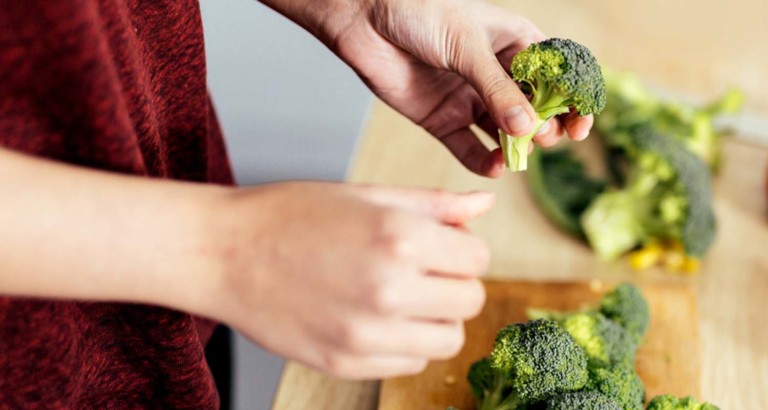
A recent health feature by the BBC explores the connection between gut bacteria and depression — and whether getting a new microbiome by way of a fecal transplant can cure mood disorders.
What is the microbiome?
Your microbiome — home to trillions of bacteria, viruses, and other microorganisms, as well as a wide array of fungi — keeps your entire body functioning properly. When the good kind of bacteria is in control, you function at your peak. But when the bad bacteria outnumber the good, you experience anything from nausea and brain fog to more serious conditions like leaky gut. Now growing research points to a connection between emotional health and a balanced gut.
Related: How to Own Your Gut Bacteria and Fix Leaky Gut Syndrome
Microbiome transplants
To test the connection between gut bacteria and depression, scientists at the APC Microbiome Centre at Ireland’s University College Cork transplanted the microbiome from people with depression to rats, a method known as a fecal transplant (aka trans-poo-sion)[ref url=”https://www.ncbi.nlm.nih.gov/pmc/articles/PMC5530613/”] They found that after transferring the fecal bacteria, the rats exhibited depressed behavior, including anhedonia — when people lose interest in ordinary pleasures.
“We were very surprised that you could, by just taking microbiome samples, reproduce many of the features of a depressed individual in a rat,” study co-author John Cryan, professor of anatomy and neuroscience at University College Cork, told the BBC.
The rats had access to sugary water before and after the fecal transfer. At first, they couldn’t get enough of the sweetened water, yet “when they were given the microbiome from a depressed individual, they no longer cared,” said Cryan.
How gut bacteria affects the brain
The BBC highlighted the different ways in which gut bacteria impact the brain:
- Bacteria travel along the vagal pathway, a system of nerves connecting the brain to other bodily organs, including the gut.
- Bacteria break down dietary fiber into short-chain fatty acids, which can affect the brain.
- The gut microbiome influences the immune system by training it to function properly.
The microbiome and disease
Naveen Jain, founder of Viome, a service that measures your gut’s microflora, said in a recent Bulletproof Radio (iTunes) podcast that a microbiome imbalance is to blame for numerous illnesses, including Alzheimer’s and depression.
“Whether you start to think about autoimmune diseases, the allergies, eczema, the Alzheimer’s disease, the autism, the depression, the ADHD and anxiety, they may look all different,” he said. “The symptoms may be different but the underlying cause for all of them is exactly the same, which is imbalance of your microbiome. And your immune system responds to the environment that you are in.”
Ways to heal your gut to combat stress and depression
Even without a fecal transplant, there are things you can do to fix your gut. Right now, a fecal transplant is only approved for treatment of c. Diff, not for depression. Here’s how to hack your belly’s bacteria:
- Clean up your diet: Diets high in processed, preserved, and allergy- or histamine-producing foods (like conventional yogurt as opposed to coconut alternatives, lunchmeat, alcohol, and yeasty foods like bread) are linked to an unhealthy gut biome. Bad bacteria feed on sugar, so cut it out where you can. Instead, aim for vegetables that promote good gut bacteria growth. Broccoli and other cruciferous vegetables like kale, cabbage, and cauliflower are great options.
- Add resistant starch to your daily intake: Resistant starches like green banana flour, plantain flour, cassava flour, and potato starch work like soluble fiber in your diet to feed the good bacteria.[ref url=”https://www.ncbi.nlm.nih.gov/pubmed/8695601″] Start slowly with resistant starch and work your way up.
- Consume collagen to repair your gut lining: Another key to a healthy gut is its lining, or intestinal wall. Short-chain fatty acids are produced when bacteria ferment fiber or collagen protein in the colon, helping your gut lining maintain itself. Adding bone broth to your daily diet regimen will go a long way to strengthen your gut lining.
- Take probiotics to lower inflammatory, histamine enzymes: In the specific case of depression, try bifidobacterium longue and lactobacillus helveticus. Look for CFUs (colony forming units) when you purchase them, not brands offering multiple, different strains in one supplement. Opt for probiotics with fewer strains – different strains compete in your gut for food, canceling each other out.
- Avoid antibiotics when possible: Antibiotics kill the good bacteria in your gut and throw its subtle balance out of whack. Discuss alternative options with your doctor if at all possible.










